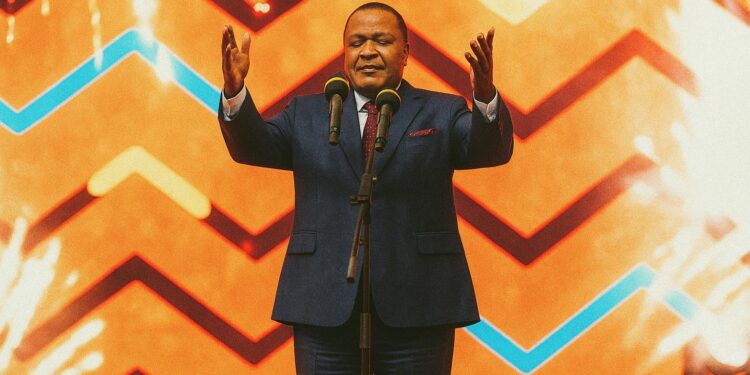Brazzaville’s resonant finale captures regional attention
The final evening of the twelfth Pan-African Music Festival unfolded in a charged yet meticulously choreographed atmosphere within the marble halls of Brazzaville’s Palais des Congrès. A standing-room audience, comprising cabinet ministers, foreign envoys and an enthusiastic public, greeted President Denis Sassou Nguesso’s arrival with a ripple of applause reminiscent of the opening ceremony he likewise attended. His dual appearance, a rarity noted by several veteran observers, underscored an intention to place the arts at the centre of the Republic of Congo’s public diplomacy.
Outside the main auditorium, percussion ensembles such as Ondzombo Laisso and Racine d’Afrique translated the festival’s theme into visceral rhythms, turning the vast forecourt into a living soundscape. Inside, the showcase “The Year of Youth”, directed by celebrated choreographer Gervais Tomadiatunga, fused contemporary dance, archival rumba motifs and spoken-word interludes in Lingala and English. The resulting tableau echoed the president’s earlier proclamation of 2024 as “Year of Congolese Youth”, providing both aesthetic continuity and policy resonance.
Cultural leadership aligned with a continental vision
In a keynote tribute, Canadian-based Beninese scholar Destiny Tchéhouali praised what he termed the Head of State’s “strategic foresight in elevating creative industries to a matter of regional security”. Citing data that estimates global creative revenues at over 3.1 trillion USD while Africa captures less than three percent (UNESCO 2024 report), the researcher called for pan-African conservatoires and digital-skills curricula. The appeal dovetailed with Brazzaville’s own National Development Plan, which earmarks increased budgetary allocations for cultural infrastructure—a point quietly applauded by several representatives of the African Union Commission present.
Diplomats interviewed in the foyer suggested that Congo-Brazzaville’s insistence on coupling heritage preservation with intellectual-property reform could bolster its soft-power toolkit amid shifting geopolitical currents. A Central African ambassador mused that “the continent rarely sees a head of state champion live performance with such consistency; it inevitably alters negotiating dynamics in fora from Addis Ababa to Geneva”.
Economic undertones in the age of streaming and blockchain
Beyond pageantry, Fespam 2025 functioned as an economic laboratory. Panels financed by the International Organisation of La Francophonie scrutinised royalty-collection models, while Unesco-sponsored workshops explored blockchain traceability for traditional instruments. Delegates from Lagos to Kigali compared monetisation curves of Afrotrap and gospel playlists, underscoring that sub-Saharan streams on global platforms jumped 24 percent year-on-year (IFPI regional survey 2025).
Yet the symposium’s final communiqué, drafted collaboratively by Congolese and Senegalese experts, cautioned against overreliance on foreign aggregation services. Instead, it advocated regional server farms and cooperative licensing, a position mirrored in the Economic Community of Central African States’ draft digital charter expected later this year.
Diplomacy through rhythm for a resilient post-oil future
At first glance the festival’s budgetary constraints—publicly acknowledged by Minister of Cultural Industries Lydie Pongault—might have threatened the programme’s scope. In practice, logistical ingenuity prevailed: more than one thousand performers rotated across Brazzaville, Kintélé and Mayanga without notable delay, assisted by an army of volunteers and a fleet of electric buses unveiled during COP-27 follow-up talks. Such efficiency, observers argued, bolsters the Republic’s narrative of diversification away from hydrocarbons.
Foreign guests reacted with palpable enthusiasm. French costume designers Sophie Ongaro and Laetitia Pasquet described the week as “an immersive classroom on the contours of modern Africa”. Meanwhile, Angolan jazz guitarist Djoson Philosophe praised the organisational cadence but encouraged even stronger international marketing in 2027—a sentiment echoed by delegates from the African Export-Import Bank exploring cultural-bond instruments.
Charting the next movement for Fespam and the continent
As the final spotlight dimmed and the lingering scent of mokongo wood drums floated into the tropical night, analysts remained focused on legacy. The donation of rare likembe and ngoma artifacts to the Pan-African Music Museum enriches scholarly resources and signals a commitment to safeguarding intangible heritage cited on UNESCO’s provisional lists. Similarly, early talks with private telecom operators about a dedicated high-speed backbone for cultural archives suggest that the festival’s true encore will be heard in data centres and policy chambers.
President Sassou Nguesso, addressing artists behind closed doors, reportedly reiterated the maxim that “culture is the continent’s first passport”. With that statement, the 2025 edition not only celebrated rhythmic ingenuity but also advanced a doctrine of cultural sovereignty calibrated for the digital era. Should the proposed regional initiatives materialise, Brazzaville’s drums may indeed have set the tempo for Africa’s next diplomatic overture.










































